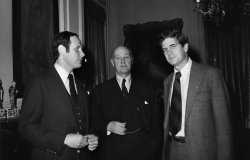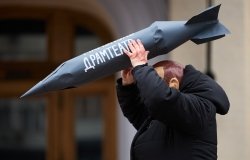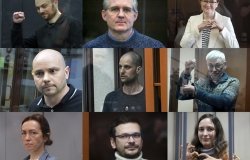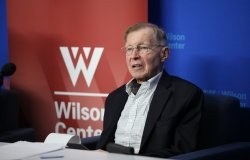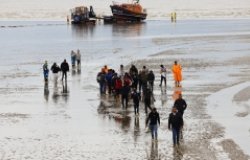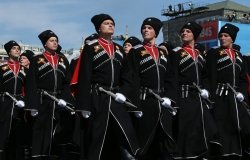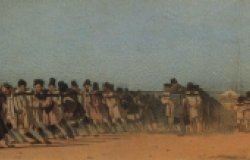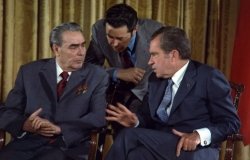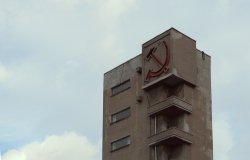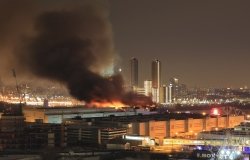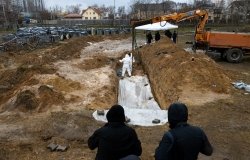Who Won the Ukrainian Presidential Elections and Why
Paul D'Anieri, Associate Dean for the Humanities and Associate Professor of Political Science, University of Kansas. Video of this event is now available.
Overview
At a November 22, 2004 Kennan Institute talk, Paul D'Anieri, Associate Dean for the Humanities and Associate Professor of Political Science, University of Kansas, discussed the early results of the second round of presidential elections in Ukraine, which were held on November 21. According to D'Anieri, at that time the Central Elections Committee had not officially declared a winner, but had publicized preliminary results that indicate that Prime Minister Viktor Yanukovych beat opposition candidate Viktor Yushchenko. D'Anieri contended that the results released by the Central Elections Committee demonstrate that the state was engaging in blatant electoral fraud—for example, voter turnout in the pro-Yankovych regions of eastern Ukraine was reported to be an unbelievably high 95-98 percent. On November 22, many Ukrainians reacted to the election results by taking to the streets in protest, and several city councils, including Kyiv and Lviv, declared the elections fraudulent and announced Yushchenko as the winner.
D'Anieri cautioned that it is too early to speculate how the situation will develop. Although the number of protestors on the streets on November 22 was very high, if people lose confidence that street demonstrations will be successful, the crowds will quickly diminish and become insignificant, he argued. If, on the other hand, people believe that demonstrations will be successful, more and more of them will join and the government will be forced to take action. In this situation, D'Anieri argued, the actions of the military, police, and security forces will be a very important variable. It is difficult to predict if they would side with the government or with the protestors. D'Anieri raised the possibility that current president Leonid Kuchma will respond to the protests and evidence of electoral fraud by declaring the elections invalid, which he is empowered to do by the Ukrainian Constitution. In this situation, Kuchma would either declare a state of emergency and remain in power indefinitely, or hold an entirely new election with different candidates.
According to D'Anieri, there are several areas that will be important to watch in the coming days. One important factor will be the situation in Kyiv. D'Anieri was surprised by the Kyiv city council's declaration of support for Yushchenko, because Kyiv Mayor Oleksandr Omelchenko has been a strong supporter of Kuchma and the party of power. If Omelchenko defects into Yushchenko's camp, it could be very important for the opposition. In addition, D'Anieri believes that popular demonstrations in Kyiv will play a much greater role than demonstrations in any other city in determining the outcome of the election. A second important factor will be the regional division of Ukraine. D'Anieri noted that regional leaders in Western Ukraine are strongly pro-Yushchenko, while regional leaders in Eastern Ukraine are strongly pro-Yanukovych. He warned that if Yanukovych is declared president and the western regions refuse to recognize him, this could amount to de facto secession.
Hosted By

Kennan Institute
The Kennan Institute is the premier US center for advanced research on Eurasia and the oldest and largest regional program at the Woodrow Wilson International Center for Scholars. The Kennan Institute is committed to improving American understanding of Russia, Ukraine, Central Asia, the South Caucasus, and the surrounding region though research and exchange. Read more
Thank you for your interest in this event. Please send any feedback or questions to our Events staff.
